Kids in child care are especially prone to getting Hand, Foot and Mouth Disease (HFMD). Find out how to protect your little ones from this contagious disease.

Hand, Foot and Mouth Disease is something you'll become very familiar with when your kid enters preschool, as children there are especially prone to catching it. Young Parents finds out more about this hot-topic illness with help from the Ministry of Health’s (MOH’s) website and Professor Paul Anantharajah Tambyah, senior consultant infectious diseases physician at the National University Hospital.
1 What is HFMD?
It is a common childhood viral infection caused by a group of intestinal viruses called enteroviruses. The most common culprit is the Coxsackie virus and, on rarer occasions, Enterovirus 71. While both adults and kids can be affected, young children – particularly those under the age of five – are more susceptible.
2 How does HFMD spread?
The illness is transmitted through direct contact with the nasal discharge, saliva, faeces or from the blisters of an infected person. In a preschool setting, this occurs when the saliva of one child is passed to another through shared toys or other common objects, and surfaces such as doorknobs.
3 What happens if my child is infected?
Denne historien er fra January 2019-utgaven av Young Parents Singapore.
Start din 7-dagers gratis prøveperiode på Magzter GOLD for å få tilgang til tusenvis av utvalgte premiumhistorier og 9000+ magasiner og aviser.
Allerede abonnent ? Logg på
Denne historien er fra January 2019-utgaven av Young Parents Singapore.
Start din 7-dagers gratis prøveperiode på Magzter GOLD for å få tilgang til tusenvis av utvalgte premiumhistorier og 9000+ magasiner og aviser.
Allerede abonnent? Logg på
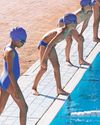
Everything You Need To Know About Direct School Admission
If your kid is good at sports, music or has other talents, the DSA programme may be his key to getting into an elite secondary school or specialised school. Here’s what you should know about the process.
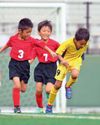
What Is The Right CCA For Your Primary School Kid?
Co-curricular activities (CCAs) aren’t just frivolous frills. They teach kids important life skills that can’t be found in a classroom lesson. EVELINE GAN finds out how to select the right one for your child.
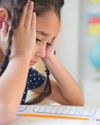
Why You Shouldn't Let PSLE Stress Take Over Your Kid's Life
PSLE preparations start in Primary 5, which means a high-pressure two years for your family. Here's how to support your child so they can do their best.
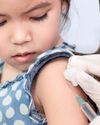
Should Your Kid Skip A Vaccine Shot?
Vaccinations are a rite of passage for every Singaporean child, but what if your kid is sick before an appointment, or misses a booster dose? Find out the answers to these and other pressing questions.
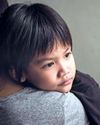
Separation Anxiety, Bullies And Other Preschool Blues
Preschool is rarely a smooth journey for children. Sasha Gonzales asks the experts how to handle the most common dilemmas, from separation anxiety to having trouble making new friends.
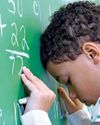
Is Your Kid Stressed About Starting School This Year?
School kids in Singapore are more stressed than their peers overseas. If your kid is feeling the pressure, here’s how to find what's triggering his anxiety – and how to help.

Speech Problems In Singapore Kids: When Should You Worry?
How can you help your little one get over his stuttering? Should you worry that your tot doesn’t speak as well or isn’t as talkative as his cousin? Sasha Gonzales polls the experts on the pressing speech and language issues in toddlers and preschoolers here.

The Most Common Learning Difficulties In Singapore Kids
Struggling to read, write or count is a common problem for many children, but how do you know when that struggle is actually a learning difficulty or disability? Sasha Gonzales asked three experts to tell us what signs to look out for and when to know to get help.
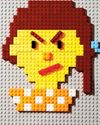
Can You Really Un-Spoil Your Child?
Yes, there are ways to turn things around – without losing your temper. Here, the experts share strategies you can use in common bratty situations.
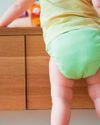
Bottoms Up!
Using cloth nappies helps save the Earth – and your wallet, too, say these mums who choose not to put their babies in disposable diapers.